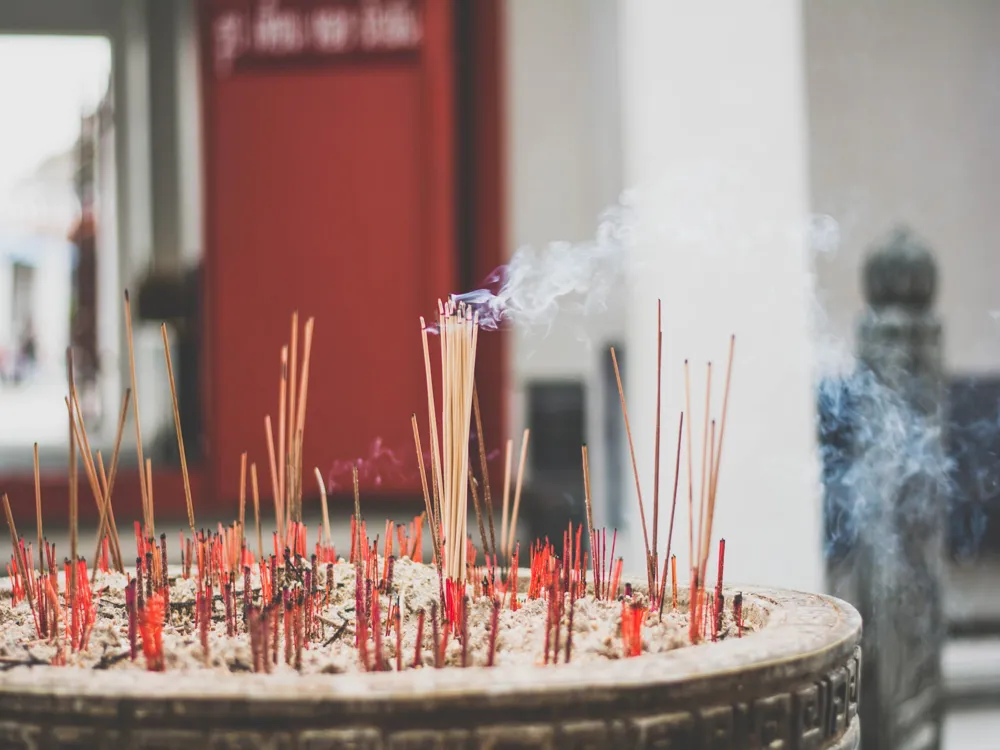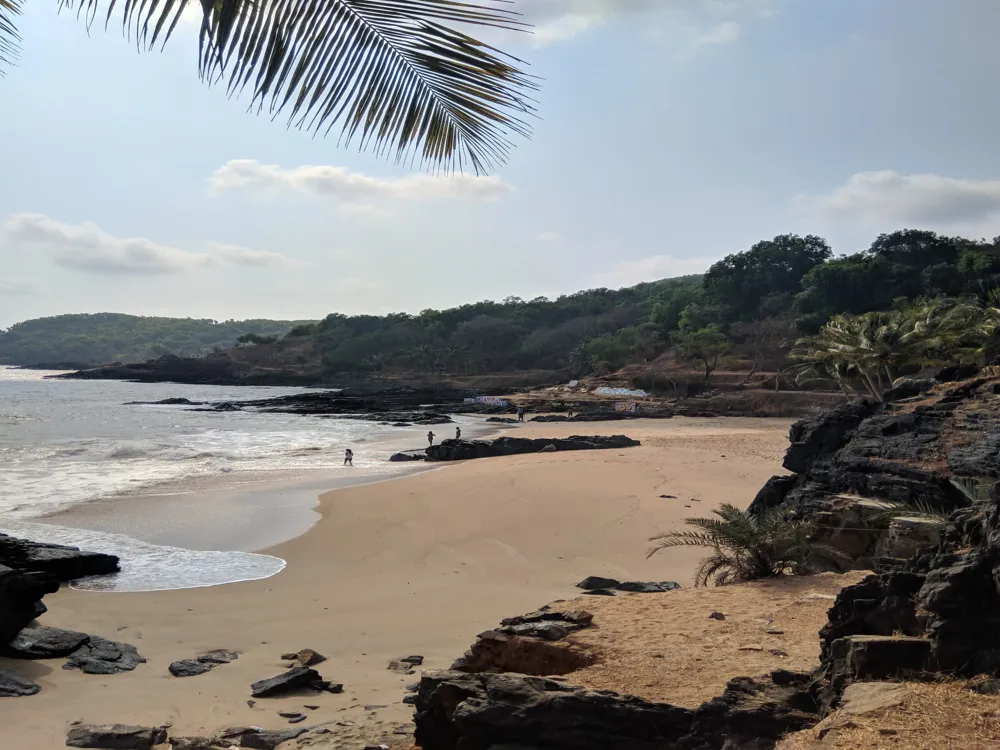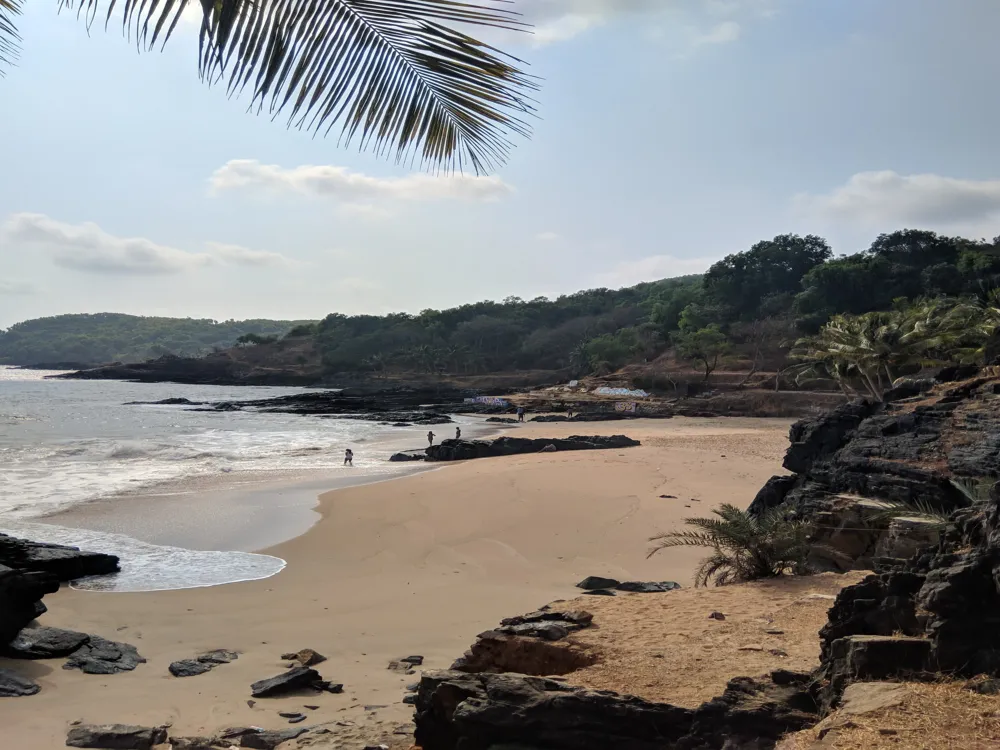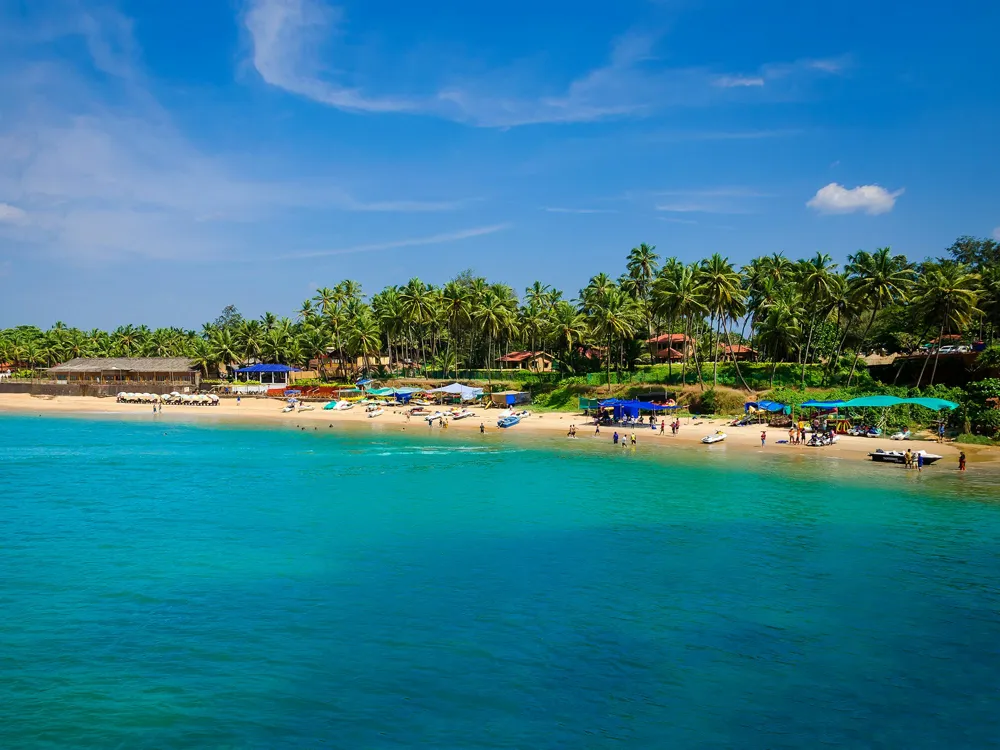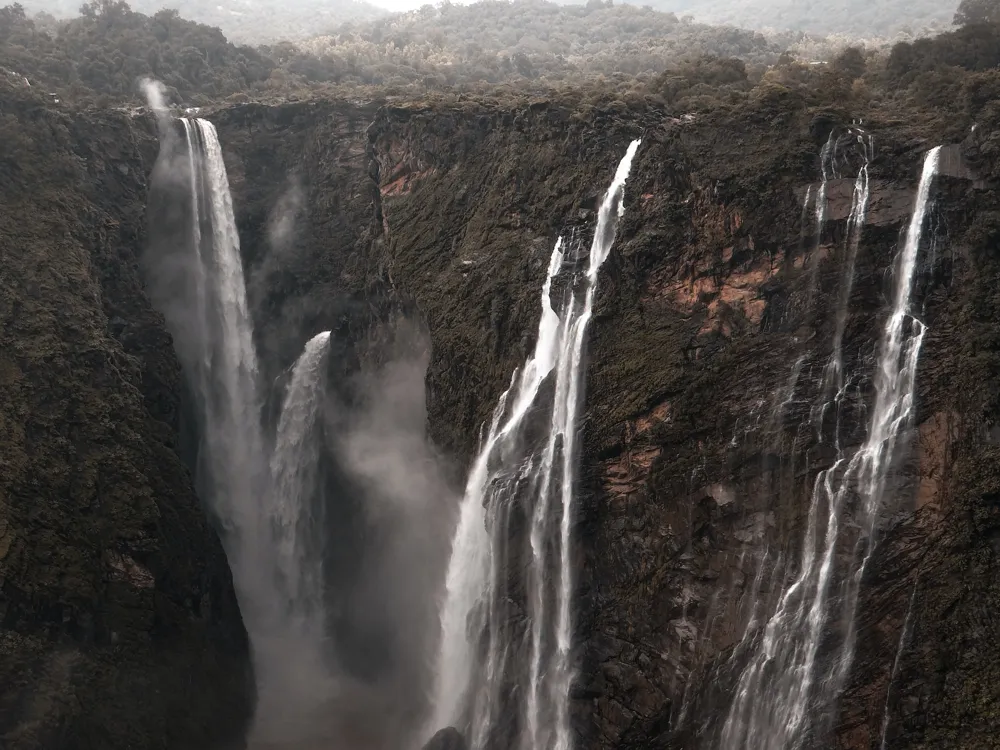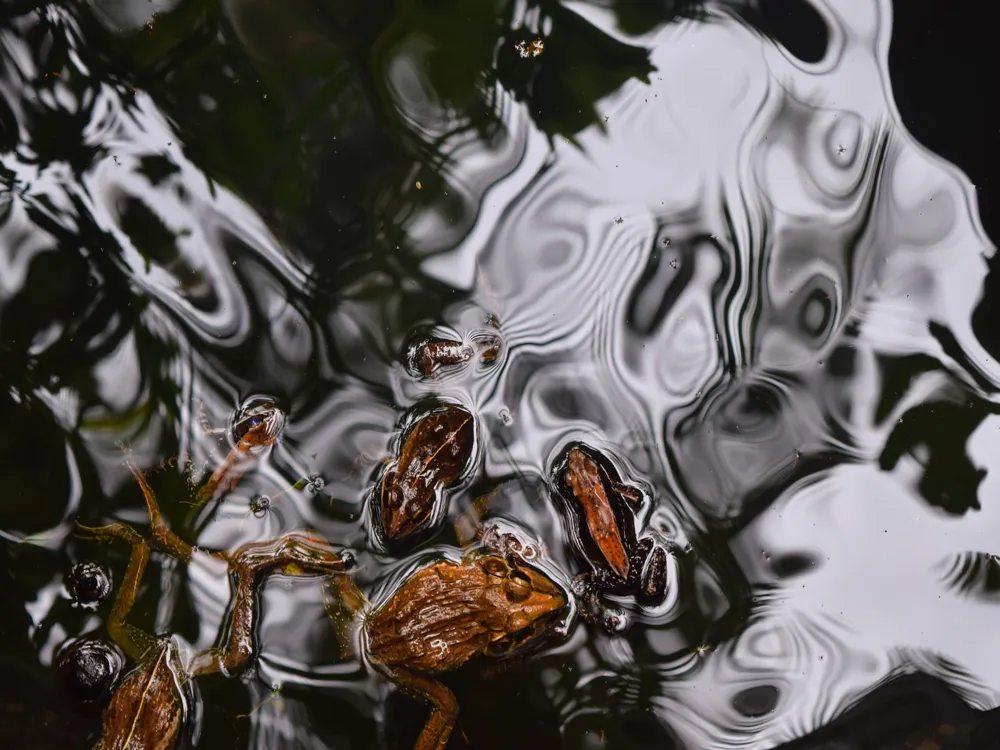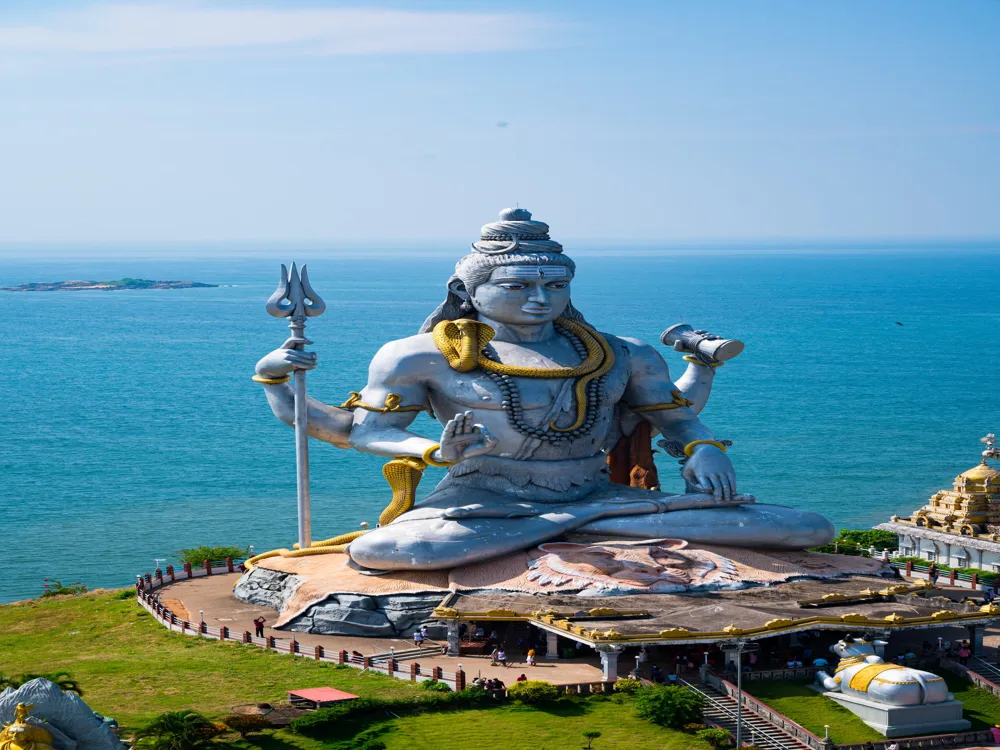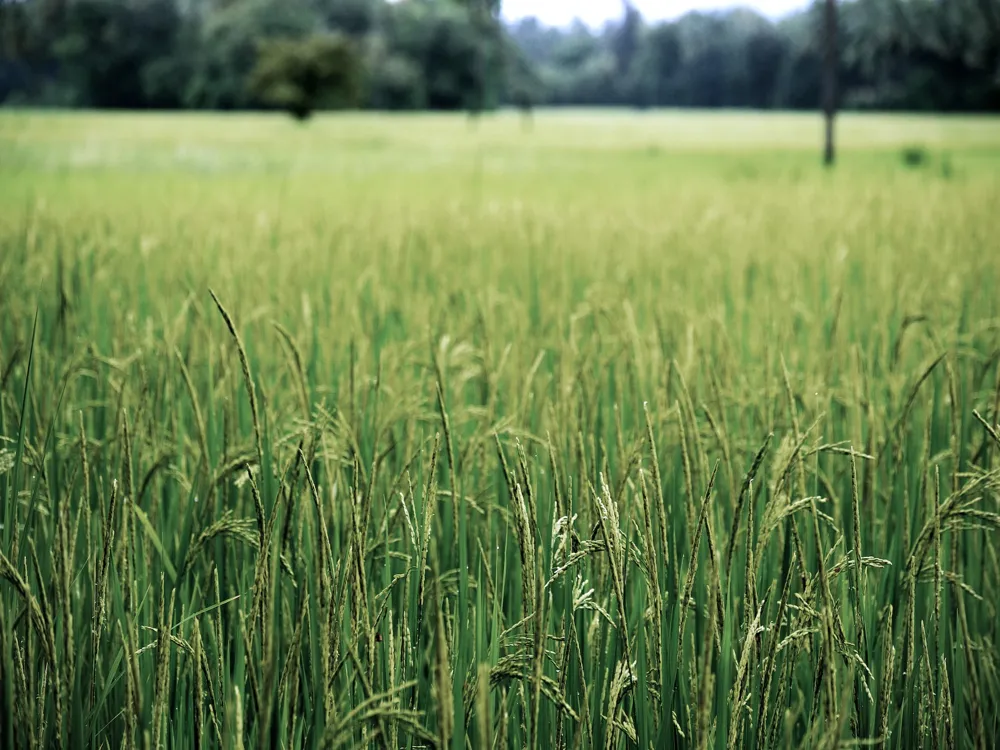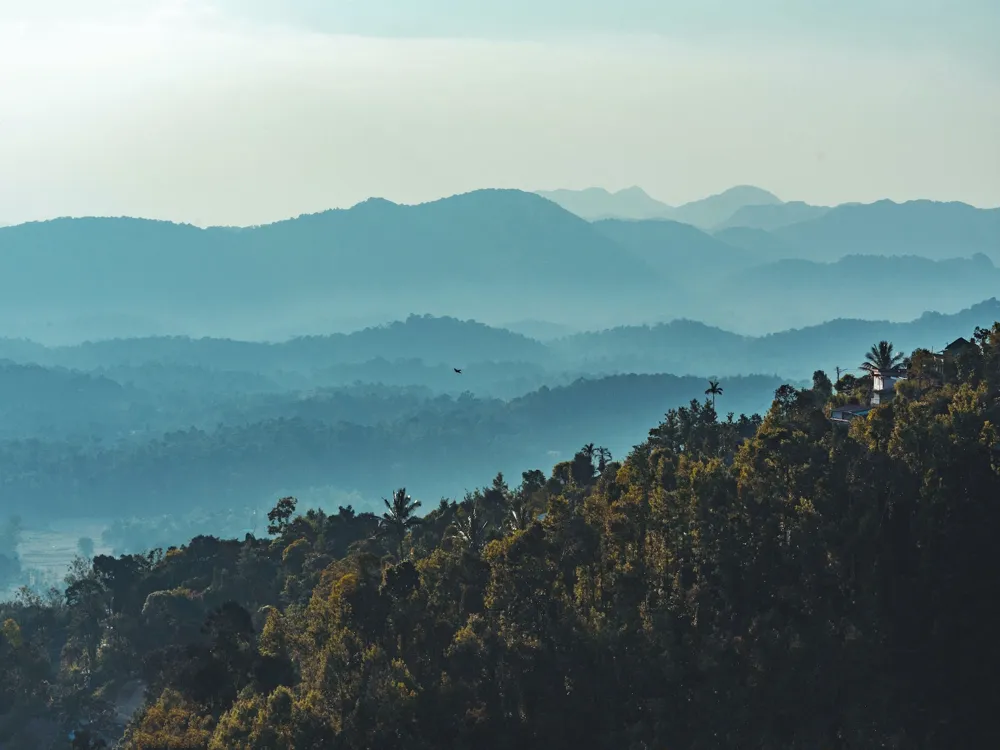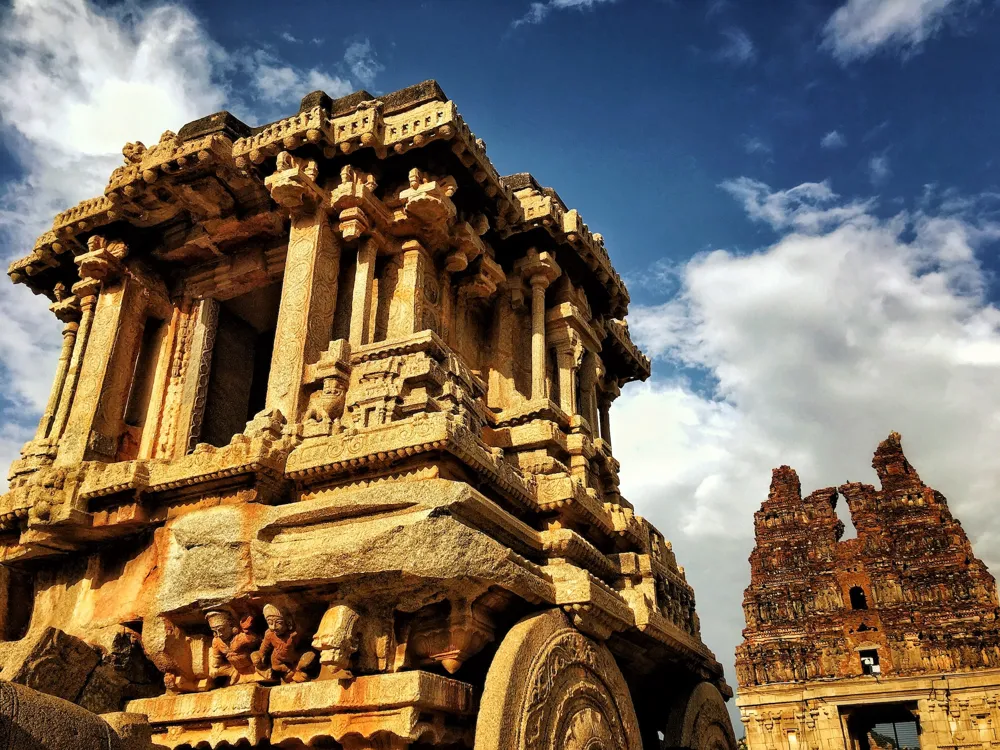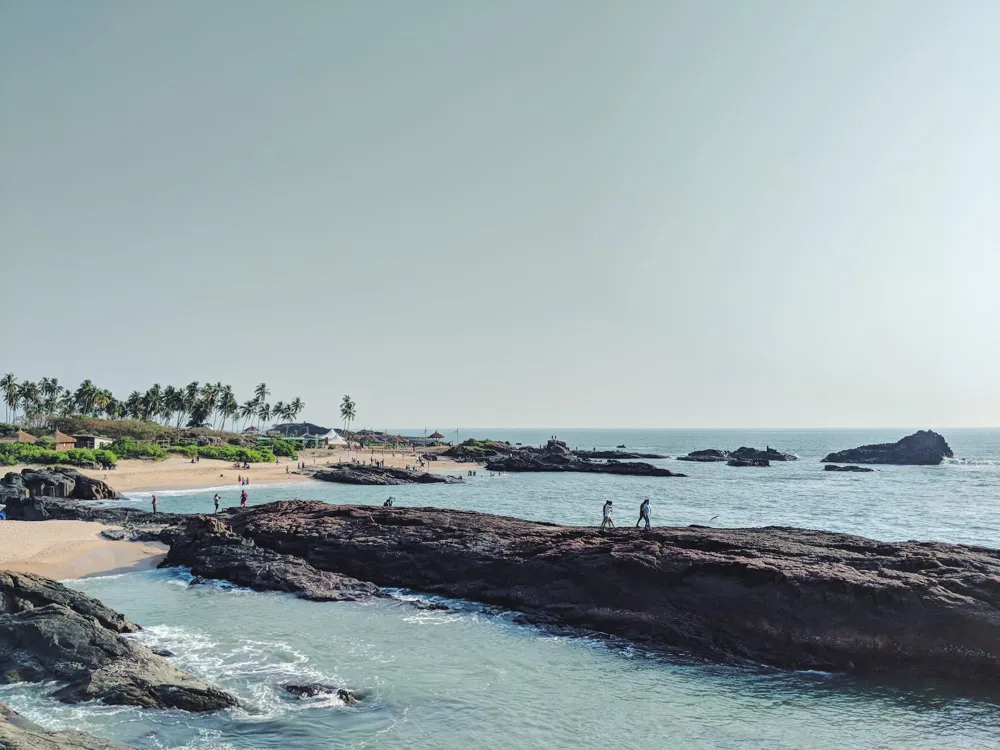Gokarna, a small temple town located on the Arabian Sea coast in Karnataka, India, is a blend of spiritual heritage and stunning natural beauty. Known for its pristine beaches and historic temples, Gokarna attracts a diverse array of visitors, from pilgrims to beach lovers and international tourists. The town, which translates to 'Cow's Ear' in Sanskrit, is steeped in mythology and is considered as sacred as Varanasi in Hindu religion, making it an important pilgrimage site. The legend of Gokarna dates back to the epic times of the Ramayana and Mahabharata. According to Hindu mythology, Gokarna is the place where Lord Shiva emerged from the ear of a cow. This mythological significance imbues the town with a serene, spiritual aura that is palpable in its every corner. Apart from its religious significance, Gokarna is also renowned for its untouched beaches. The main beaches – Kudle Beach, Om Beach, Half Moon Beach, and Paradise Beach – are famous for their scenic beauty and tranquility, offering a perfect escape for those seeking peace and solitude. While Gokarna's primary identity is that of a religious town, it has also evolved into a popular destination for backpackers and travelers who are drawn by its laid-back vibe and natural beauty. The town's unique blend of spiritual and leisure tourism makes it a compelling destination for a wide range of visitors. In addition to its beaches and temples, Gokarna is surrounded by lush green hills and clear blue waters, making it a paradise for nature lovers and adventure enthusiasts. Gokarna's architecture is a vibrant tapestry that weaves together the town's rich cultural heritage and religious history. The most prominent feature of Gokarna's architectural landscape is its ancient temples, which exemplify classic Dravidian architecture. The Mahabaleshwar Temple, the town's centerpiece, is a stunning example of this style. Built in honor of Lord Shiva, the temple is renowned for its intricate carvings, towering gopuram (gateway tower), and the Atmalinga, a sacred symbol of Shiva. The Dravidian style of architecture, predominant in South India, is characterized by its pyramid-shaped towers, intricately carved stone work, and expansive courtyards. This style is not only limited to temples but is also seen in the design of traditional homes and public buildings in Gokarna. These structures often feature elaborately decorated doorways, courtyards, and pillared halls, which are hallmarks of Dravidian design. The use of locally sourced materials, such as granite and laterite, in these buildings not only adds to their aesthetic appeal but also demonstrates the ingenuity of ancient Indian architects. Apart from the Dravidian influence, Gokarna's architecture also showcases elements of Portuguese style, a remnant of their brief presence in the region. This fusion of architectural styles gives Gokarna its unique character, blending the sacred with the historical, and the ancient with the colonial. The town's architectural landscape is a testament to its rich and diverse history, encapsulating centuries of cultural and religious evolution. The ideal time to visit Gokarna is from October to March. During these months, the weather is pleasant, with cooler temperatures and minimal rainfall, making it perfect for beach activities and temple visits. While exploring the temples, it is important to adhere to a conservative dress code. Avoid wearing shorts or revealing clothes. Respect the local customs and traditions, especially when visiting religious sites. Gokarna offers a variety of local delicacies, primarily seafood. Do try the traditional Karnataka dishes like Neer Dosa and fish curry. Vegetarian options are also widely available, especially in and around the temple areas. From budget guesthouses to luxury resorts, Gokarna caters to all types of travelers. Beachside cottages and homestays are popular for those seeking a more immersive experience. Gokarna is well-connected by road, rail, and air. The nearest airport is in Goa, which is around 140 km away. From there, one can hire a taxi or take a bus to Gokarna. The town also has its own railway station, Gokarna Road, which is well connected to major cities in Karnataka and neighboring states. For those preferring to travel by road, there are regular bus services from Bangalore, Goa, and other major cities.Overview of Gokarna, Karnataka
Architecture of Gokarna
Tips When Visiting Gokarna
Best Time to Visit
Dress Code and Etiquette
Local Cuisine
Accommodation Options
How To Reach Gokarna
Sirsi
Gokarna
Karnataka
NaN onwards
View gokarna Packages
Weather :
Tags : Town
Timings : 24 hrs
Time Required : 1 - 2 days
Entry Fee : No Entry Fee
Planning a Trip? Ask Your Question
Gokarna Travel Packages
View All Packages For Gokarna
Top Hotel Collections for Gokarna

Private Pool

Luxury Hotels

5-Star Hotels

Pet Friendly
Top Hotels Near Gokarna
Other Top Ranking Places In Gokarna
View All Places To Visit In gokarna
View gokarna Packages
Weather :
Tags : Town
Timings : 24 hrs
Time Required : 1 - 2 days
Entry Fee : No Entry Fee
Planning a Trip? Ask Your Question
Gokarna Travel Packages
View All Packages For Gokarna
Top Hotel Collections for Gokarna

Private Pool

Luxury Hotels

5-Star Hotels

Pet Friendly








